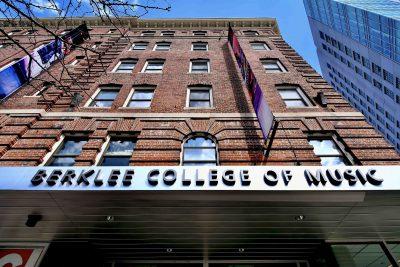While the nation remains in self-isolation in the coming weeks or months, musicians are striving to re-establish human connection. Artists across the world have found creative ways to share their work in an attempt to return to normalcy. One such collaboration is a rendition of “What the World Needs Now,” a song written by Burt Bacharach and Hal David in 1965, by Boston area students.

The collaboration, which was posted on social media platforms on March 22, has garnered widespread media attention. It features a group of more than 73 artists — vocalists singing to a screen and instrumentalists playing from the piano, violin, drums, bassoon, harp to cello. The students, who are spread nationwide and restricted to their homes in light of the coronavirus pandemic, came together to showcase their individual musical talents.
Produced, arranged and edited by Shelbie Rassler, a senior majoring in composition at Boston Conservatory at Berklee College of Music, she said the idea for the performance came to Rassler as she boarded her flight back to Florida after her classes were moved online.
“Initially, I was just trying to think about different things that I could do to try to keep the community together and working together and collaborating,” Rassler said, “even when we couldn’t physically be in the same space at the same time.”
Rassler said the classic song exemplified the current global situation. After first posting her idea on Facebook in an attempt to seek artists to participate, she said she was amazed by the large outpouring of support in her college and the city, especially in such uncertain times.
Once the final product was complete, Rassler said she was surprised by how well the public responded to the song.
“While I’m so happy that this is happening and I’m so excited for the response it’s been receiving, it’s not lost on me that the world is in a really, really terrible place right now,” Rassler said. “I’m just really happy that this is offering a four-minute distraction from the tragedy that’s going on.”
Dan Santiago, a senior majoring in contemporary writing and production and professional music at Berklee, worked as the mix engineer on the video. A big challenge in this project, he said, was creating the effect that each performance was recorded in the same space simultaneously.
“For an orchestral recording like this … my vision was that everybody was in the same space,” Santiago said, “this big choir with all these different singers and this whole orchestra happening [together].”
In achieving that coherence, different technologies imposed further problems, Santiago said. For instance, some students, without access to decent equipment at home, recorded themselves on their phones. Santiago sought to find the right balance between each of the various audio files to make them sound like one track, making slight sound edits and adding effects to sync up the clips.
Michael Valladares, a junior in the College of Fine Arts at Boston University, was forced to return home from his study abroad program in London. He said he was drawn to participate as a vocalist in the project with Rassler, an old high school friend, to spread joy in a tumultuous time, believing that art and music can provide hope to the masses.
“I hope that, having created this project, it maybe inspires other artists to try to do similar things … to not let situations in the world become a setback [for] them, but to allow [them] to feed their artistic practices and allow them to express themselves in ways that they wouldn’t do in their normal lives,” Valladares said. “Maybe having an interruption in your everyday routine will help you come up with new thoughts and ideas and ways to express what you’re feeling.”
In the past few weeks as social distancing grew more prevalent in Boston, Santiago found himself at home without work. When he saw Rassler’s post on Facebook, he said he thought it would be an opportunity to exercise his technical skills and create something meaningful.
“I’m a producer and this seemed like a fun way to get myself back into it,” Santiago said. “I just saw the project and thought it might be cool.”
Santiago said he had a feeling from the start that this project would be impactful, but didn’t foresee it going as far nationally as it has.
“When you do this stuff long enough, when you have 150 people that are all generally well-connected in the area involved in one big thing, it’s bound to spiral,” Santiago said.
Talking about the challenges in the editing process, Rassler says that it was something she had never done before, which is why she was eager to learn on the go and not worried about the feedback.
“This is offering a form of a distraction from the tragedy that’s going on,” Rassler said. “I’m just really happy that it’s bringing a little bit of comfort to people around the world who really need it right now and are struggling to find light in this time.”






























































































































